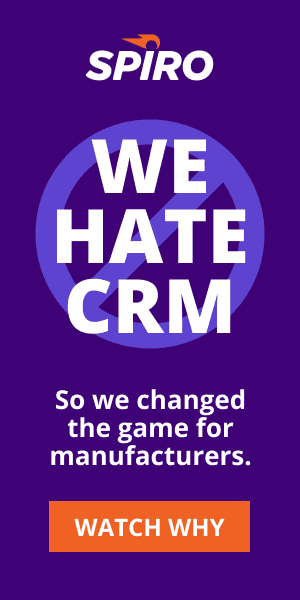Will Sales Prospects See You As An Authority if You Can’t Back It Up?
We got a lot of feedback on our blog post about using the principle of authority to boost your sales game. If you haven’t checked it out, the authority principle goes something like this: Make yourself look like and sound like an authority, and you can gain more influence over your prospects. Simple, right? (Actually, it sounds like Spiro’s R-Rated personality has this down pat.)
There’s one burning question our readers had: Does this “authority” come from an implied threat of negative consequences if the prospect doesn’t listen to you? The short answer is yes and no.
Deep down inside, we as humans, who assumably live in an organized society of some sort, have a natural inclination to identify people with good and reliable information upon which we base our decisions
We trust, respect, and listen to these people based upon a bunch of different things such as outward signals like clothing (a sharp suit), reputation (if other trusted sources vouch for us), and expertise (do we actually know what we’re talking about).
In our blog post, we talked about how things like signals of wealth and power (nice car, corner office, etc.) can communicate trust. But that superficial stuff only goes so far. Real authority comes from EXPERTISE. Do you know your shit?
We always emphasize that you need to be at the top of your game to be legendary in the sales game, and a huge part of that is doing the research. If you’ve educated yourself to the nth degree about your product, your prospect’s needs, your competitors, and the market, you’ll more than likely be able to win over your prospect. Why? Because you’re a reliable resource; AKA an authority.
So where does the negative factor in?
While no salesperson I know would ever try threatening or implying a negative consequence to a prospect, there’s definitely a place for the dark side. It’s your job as an artist to help them paint that picture.
To be clear: This is not a territory for noobs. This is artistic work and requires a subtle touch. Here’s how you do it.
Be so good at your value proposition that you can illustrate to the prospect why they might be making a mistake by going with the competitor. Would it cost their company in wasted time and money? If you’re doing your work as a salesperson, you’ll know both the buyer (the person you’re dealing with) and the company: The buyer doesn’t want to have to get fired if the product they decide upon fails and the company doesn’t want to spend resources fixing a faulty product.
Ask your prospect what their biggest concerns are. Ask them what the worst case scenario might be and repeat it back.
You can paint the picture of what it would be like if things went WRONG and, by comparison, how your product or service would make them SO RIGHT. That’s where the negative comes into play.
Why do most salespeople not take this approach? Because they don’t want to risk sounding like assholes. They don’t want to present a situation and then be wrong. They don’t want to go overboard.
Most sales guys like taking the high road, while some don’t mind bashing the competition at all. I take a middle road. What I like to say is, for example, “do you know what x company does for maintenance? Have you really investigated that?”
You know how well our company does i, that’s your offensive. Even if the competition has a great maintenance track record, you’re still reinforcing the prospect’s confidence by using this little Jedi mind trick.
Remember that the negative is only implied with the authority principle. You’d never threaten a prospect – obviously that wouldn’t go over well. It might seem like delicate work, but your skills will speak for themselves if you put in the work to make yourself an expert.
Be patient, grasshopper.
Photo courtesy of www.linkis.com

